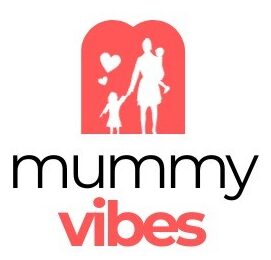
How Lifestyle Startups Are Capturing Gen Z’s Attention
Gen Z is forcing companies to reconsider how they engage with customers in a rapidly changing digital landscape. Born approximately between the late 1990s and the beginning of the 2010s, this generation doesn’t simply purchase a product for its functionality. Its meaning is important to them.
Because of this, lifestyle startups are growing rapidly. These businesses support personal identities, communities, and values in addition to selling goods. In the process, they have discovered the key to capturing Gen Z’s interest: relevance over reach.
Modern branding is being rewritten by startups that know how to interact, communicate, and develop with this generation. We should investigate how.
Startups that understand how to communicate, engage, and grow with this generation are rewriting the rules of modern branding. Let’s explore how.
When it comes to branding, simplicity is key.
Modern startups are aiming for brand names that are memorable, bold, and easy to understand. This trend reflects Gen Z’s general yearning for simplicity and authenticity. For example, many new brands have short, snappy names that are effective on packaging, social media, and even in conversations.
In this context, names like Prime Nicotine Pouches reflect a shift toward straightforward and minimal branding. Gen Z, in particular, tends to engage more with names that are simple, clear, and modern, even if the product itself isn’t closely aligned with their personal interests.
Genuineness Above Promotion
Polished ads and flashy slogans aren’t enough to impress Gen Z. What they want is transparency and truth. They prefer brands that show real people, real moments, and even real mistakes. Lifestyle startups are often founded on personal stories, and Gen Z appreciates when they can see that human element behind the brand.
This is why many startups today show behind-the-scenes content, raw footage, and unfiltered product development. It creates trust, and trust is the currency Gen Z values most.
Purpose Is the New Product
It’s no longer just about what a company sells. It’s about why they sell it. Startups that align with a purpose. Whether it’s sustainability, mental health awareness, inclusivity, or community support, get noticed faster. Gen Z wants to support companies that stand for something.
Businesses with a purpose typically build closer ties with their local communities. A brand is more than just a business deal when it supports social good or stands for a cause. It develops into a more significant partnership. Because of this, purpose-driven lifestyle startups are attracting devoted customers over the long run.
Word-of-mouth power and micro-influencers
Although Gen Z is much more likely to believe a peer recommendation or micro-influencer, major celebrities still have some sway. It would be wise for lifestyle startups to collaborate with relatable individuals whose lives best represent the brand’s values.
Influence like this doesn’t seem forced. Instead of feeling like a campaign, it feels like a dialogue. Stronger community ties, increased trust, and organic reach are common advantages for startups that support this marketing approach.
Experiences Rather Than Items
More devoted customers are drawn to companies that begin providing value through engagement, education, or events as opposed to just selling.
Lifestyle startups are producing experiences that extend well beyond the checkout page with community-focused apps, meaningful pop-ups, or interactive digital experiences. They are creating moments that make fans—moments that people can discuss, recall, and share.
A Design That Communicates With Them
The quality of the design is important. People in Gen Z’s highly visual world tend to judge branding and aesthetics quickly. Lifestyle startups are excelling at creating inclusive, modern, minimalist designs that feel fresh and intentional.
Everything from product packaging to social media posts and mobile-friendly websites depends on design.
Prioritizing the Community
Gen Z is more concerned with belonging than anything else. They are drawn to brands that evoke a sense of community—areas where individuals exchange ideas, values, and inventiveness.
Startups are embracing this by establishing Discord servers, holding live chats, setting up online forums, and working with their users to decide on products. People become devoted advocates rather than just customers when they feel like they are a part of the process.
A robust community increases long-term brand value. It indicates increased audience engagement, more candid feedback, and a stronger emotional bond between the brand and its target market.
Agility and Speed Are Important
Startups are more agile than large corporations. They can quickly change course when necessary, react to criticism, and adjust to emerging trends. Gen Z enjoys interacting with brands that are relevant to them and adores this type of responsiveness.
A brand can stay at the top of Gen Z’s rapidly evolving digital landscape by releasing products quickly, following meme culture, or even responding to social media moments. Fast-moving startups remain relevant, which is essential for grabbing Gen Z’s brief attention span.
Final Thoughts
In addition to businesses, lifestyle startups are establishing movements, identities, and safe spaces for expression. Gen Z doesn’t want to be marketed to. They want to fit in, collaborate, and take part.
Startups that listen, adapt, and involve their community are the ones that succeed. They create genuine experiences, take risks, and support causes they care about. Gen Z acknowledges this and responds with loyalty.
It is clear that in the years to come, Gen Z will continue to have an impact on culture, branding, and connection. Their growth will be accompanied by startups that remain true to themselves, stay up to date, and remain at the forefront.
